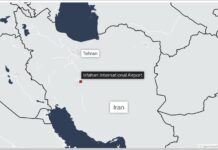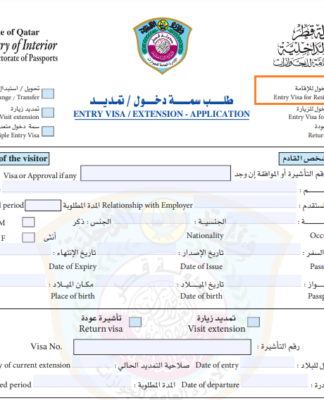The QR75bn financial aid provided by the Qatar to the private sector at the onset of the novel coronavirus pandemic (Covid-19) was among the important decisions made by the government to cushion the economy from the impact of the health crisis, an industry expert has said.
“The stimulus package is another important example of how Qatar is managing the situation both decisively and compassionately – in a way that is setting the standard internationally,” Blue Rubicon senior managing director Jonathan Shillington told Gulf Times.
According to Shillington, the pandemic has been an “extraordinary time” for everyone working in Qatar, and described it as “a situation that few risk mitigation or business continuity plans could have completely safeguarded against.”
He said: “It is the first time in most people’s careers where they have had to keep on top of their work, while being at risk of illness, looking after their families, and also working from home; a perfect storm of pressures in many ways – for which people have shown great fortitude.
“For this, we should be very thankful to the decisive leadership of His Highness the Amir Sheikh Tamim bin Hamad al-Thani, which has been an example across the region in managing the pandemic and protecting people’s lives and livelihoods. This, in turn, has enabled companies to respond effectively to the crisis in line with government guidance as the situation developed.”
Since June 15, Qatar started gradually lifting Covid-19 restrictions, which is being implemented in four phases as announced earlier by HE Lolwah bint Rashid AlKhater, official spokesperson of the Supreme Committee for Crisis Management.
Shillington stressed that proactive internal communications within organizations “is vital,” and that as a business, it is necessary to follow the rules around the phased reopening and to make sure that company employees understand what is expected of them.
“My impression is that most organizations have been able to deal with the situation remarkably effectively – and again this comes back to my point about strong but also compassionate leadership, so everyone is clear about what they must do. The phased approach to reopening is a clear example of this; as a business, we know what we can do,” Shillington pointed out.
He also said the health crisis has made the business community reflect on ways of working, particularly towards the use of offices in certain lines of work, “when people could, at times, be working more productively remotely.”
“With this mind, we have started running virtual workshops for organizations planning their return to full operations as we all adjust to a new normal post-COVID-19 lockdown. While this pandemic has been unprecedented, managements need to ensure that their operations are robust enough to withstand future pandemics of this kind and make sure they return to work in a planned and effective manner,” Shillington explained.
Ahead of Phase 4, Shillington said it is important for companies to plan so that they are safe and in line with government guidelines when their respective organizations resume full operations.
“Starting with a health and staff welfare-related question should be the first consideration, as a company’s duty to protect the staff and customers (where relevant) should be the first priority. For example, in our office, we are making sure that there is sufficient distance between people’s desks.
“Depending on the recovery scenario, organizations will have to make a series of decisions related to future business strategy and operating model, cost management measures, and customer strategy – each of which depends upon aspects, such as the duration of the virus, health of business and society, and the ability for the global supply chain to fully recover. So plan now,” Shillington stressed.
According to Shillington, the pandemic has been an “extraordinary time” for everyone working in Qatar, and described it as “a situation that few risk mitigation or business continuity plans could have completely safeguarded against.”
He said: “It is the first time in most people’s careers where they have had to keep on top of their work, while being at risk of illness, looking after their families, and also working from home; a perfect storm of pressures in many ways – for which people have shown great fortitude.
“For this, we should be very thankful to the decisive leadership of His Highness the Amir Sheikh Tamim bin Hamad al-Thani, which has been an example across the region in managing the pandemic and protecting people’s lives and livelihoods. This, in turn, has enabled companies to respond effectively to the crisis in line with government guidance as the situation developed.”
Since June 15, Qatar started gradually lifting Covid-19 restrictions, which is being implemented in four phases as announced earlier by HE Lolwah bint Rashid AlKhater, official spokesperson of the Supreme Committee for Crisis Management.
Shillington stressed that proactive internal communications within organizations “is vital,” and that as a business, it is necessary to follow the rules around the phased reopening and to make sure that company employees understand what is expected of them.
“My impression is that most organizations have been able to deal with the situation remarkably effectively – and again this comes back to my point about strong but also compassionate leadership, so everyone is clear about what they must do. The phased approach to reopening is a clear example of this; as a business, we know what we can do,” Shillington pointed out.
He also said the health crisis has made the business community reflect on ways of working, particularly towards the use of offices in certain lines of work, “when people could, at times, be working more productively remotely.”
“With this mind, we have started running virtual workshops for organizations planning their return to full operations as we all adjust to a new normal post-COVID-19 lockdown. While this pandemic has been unprecedented, managements need to ensure that their operations are robust enough to withstand future pandemics of this kind and make sure they return to work in a planned and effective manner,” Shillington explained.
Ahead of Phase 4, Shillington said it is important for companies to plan so that they are safe and in line with government guidelines when their respective organizations resume full operations.
“Starting with a health and staff welfare-related question should be the first consideration, as a company’s duty to protect the staff and customers (where relevant) should be the first priority. For example, in our office, we are making sure that there is sufficient distance between people’s desks.
“Depending on the recovery scenario, organizations will have to make a series of decisions related to future business strategy and operating model, cost management measures, and customer strategy – each of which depends upon aspects, such as the duration of the virus, health of business and society, and the ability for the global supply chain to fully recover. So plan now,” Shillington stressed.





























